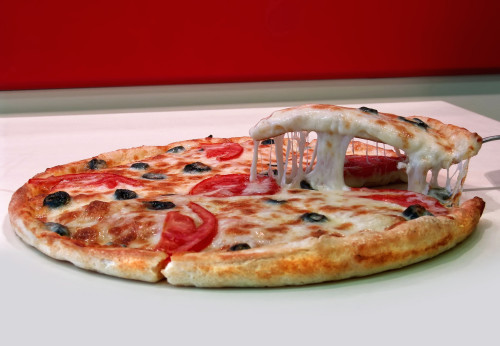By Lindsey Tolino
Do your kids want pizza for every meal but you want better for them? I donÂt have kids but I have been one long enough to know that they donÂt always want whatÂs best for themselves. If weÂre being honest, weÂre like children in this too. We want things that may not be best for ourselves.
A little over a year ago, I was working at a bakery-cafe and a customer asked if the baked goods had trans fat in them. As a fairly fanatical trans-fat-hater, I was sad to say I wasnÂt sure, so I pulled out the book of ingredients. I was astounded to read almost every single pastry was loaded with the stuff.
I was especially surprised since this bakery-cafe appealed to health-conscious, higher-educated consumers. The bakery-cafe fronted like it esteemed customer health, while it was sneaking cheap, artificial, poisonous fats into the fairly expensive baked goods. The customer that had inquired was viscerally upset.
The image of the bakery-cafe was shattered for me that day. I thought that they wanted what was best for their customers. Turns out, they wanted what was best for their bottom line. That day I thought about how a great business cares about whatÂs best for their customers, not necessarily about what their customers want.
The customer that inquired was the only one who ever asked me about it. People assumed or at least werenÂt questioning to know. But that didnÂt change the fact that the cafe should have wanted what is best for them. They could have used butter or another natural fat and still made it taste as good. Instead, they exalted their bottom line above what was best for their customers.
Businesses are responsible for what they know. If they know that something isnÂt good for their customers, they should want better for them.
I go to Planet Fitness. I like a lot of things about it. But the thing I havenÂt been able to comprehend is the monthly free pizza and bagels they give to customers. I think that Planet Fitness may have done a target market study and found that their customers like bagels and pizza (who doesnÂt really?).
But IÂm bothered by it, because they should want better for their customers. Though itÂs a no judgement zone (which I totally can get behind), that doesnÂt mean I want my gym to spur on my unhealthy behavior. Pizza and bagels may be what the customers want, but Planet Fitness should want better for their customers. Instead of investing in monthly junk food, it makes more missional sense for them to encourage healthy eating. People are there to get in shape and itÂs confusing to have your gym seemingly sabotaging your goals.
I love businesses that I can trust. When my dad was in auction school, he taught me the phrase Caveat emptor, which means Âlet the buyer beware. As a customer, I am generally suspicious of every business. I canÂt trust them until they prove it to me.
I learned to trust my mom when I was little, after I hurt myself jumping on the bed when she told me not to. I discovered she had my best interests in mind, even when I didnÂt. Similarly, I learn a business can be trusted when I discover that they want better for me than I want for myself. When I discover this, I naturally trust, support and praise a business.
When I find that a business implies that itÂs for my health, but then hides trans fat in my baked goods, it has the opposite effect. Trust is broken. My interactions with the business becomes transactional and about what each party can get out of it. I am forever suspicious.
The way to gain customer trust is to want better for your customers than they want for themselves.
Customer trust is vital to the health of your business. Your mom wouldnÂt give you pizza for every meal just because you wanted it. My mom didnÂt want me to jump on the bed because I could get hurt. DonÂt give your customers what they want, give them better than they want. A truly great business owner is looking for what is best for their customers before they even request it.
Image info: Royalty-free image from http://www.freeimages.com/photo/1196126.
